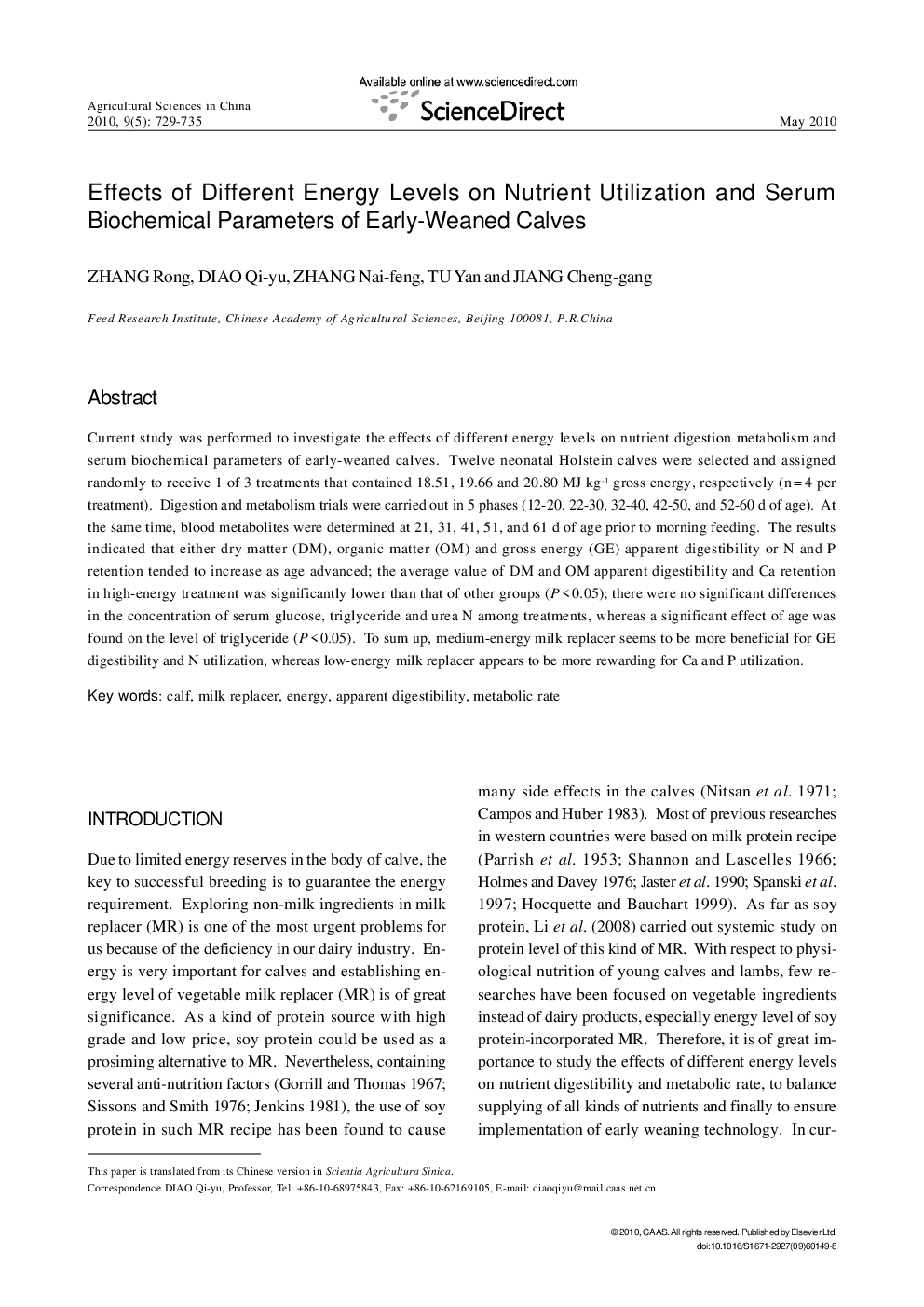| کد مقاله | کد نشریه | سال انتشار | مقاله انگلیسی | نسخه تمام متن |
|---|---|---|---|---|
| 4490242 | 1317759 | 2010 | 7 صفحه PDF | دانلود رایگان |

Current study was performed to investigate the effects of different energy levels on nutrient digestion metabolism and serum biochemical parameters of early-weaned calves. Twelve neonatal Holstein calves were selected and assigned randomly to receive 1 of 3 treatments that contained 18.51, 19.66 and 20.80 MJ kg−1 gross energy, respectively (n = 4 per treatment). Digestion and metabolism trials were carried out in 5 phases (12-20, 22-30, 32-40, 42-50, and 52-60 d of age). At the same time, blood metabolites were determined at 21, 31, 41, 51, and 61 d of age prior to morning feeding. The results indicated that either dry matter (DM), organic matter (OM) and gross energy (GE) apparent digestibility or N and P retention tended to increase as age advanced; the average value of DM and OM apparent digestibility and Ca retention in high-energy treatment was significantly lower than that of other groups (P < 0.05); there were no significant differences in the concentration of serum glucose, triglyceride and urea N among treatments, whereas a significant effect of age was found on the level of triglyceride (P < 0.05). To sum up, medium-energy milk replacer seems to be more beneficial for GE digestibility and N utilization, whereas low-energy milk replacer appears to be more rewarding for Ca and P utilization.
Journal: Agricultural Sciences in China - Volume 9, Issue 5, May 2010, Pages 729-735